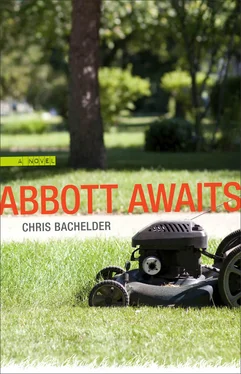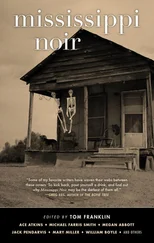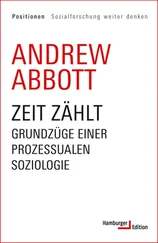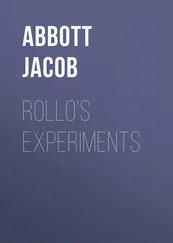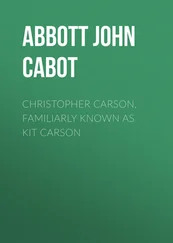25 Abbott and the Antique Tractor
Sure, they could drive across the neighborhood, but it’s more fun to walk. It’s good exercise, and it’s also nice to be outside in the summertime. Abbott dresses his daughter and gets her ready to leave. “OK, here we go,” he says, opening the front door. He feels nearly euphoric. That noise in the front yard is the squirrels. “Let’s go see the tractor,” he says. A neighbor told him there’s an antique tractor parked in the field directly behind the neighborhood, and he thought his daughter might want to see it. His wife, too. All of them. Here comes Abbott’s wife with that belly. Abbott looks at her and feels the stirring of ancient, mutually exclusive impulses. His wife regards the girl’s outfit. It’s probably right what she’s probably thinking. She says, “I don’t really … For one thing, I have never even seen those pants.” Abbott shrugs and says, “She picked them out.” This isn’t true. “Ready?” he says. “Let’s get going. Tractor!” “Wait,” his wife says. “Did you put sunblock on her?” Abbott nods his head in the manner of someone who could later deny having nodded. His wife looks right at him and says, “You did?” Abbott almost imperceptibly shakes his head. His wife says, “So you didn’t?” Abbott nods again. His wife says, “Could you put some sunblock on her?” The girl says, “Tractor.” Abbott closes the door. His wife says, “Does she have a new diaper?” Abbott’s eyes become glassy and unfocused. He breathes audibly from his mouth. He feels unhappy and old and sleepy. “And I am sorry,” his wife says, “but these are not summer pants. See, they have a lining .” Abbott attempts to say that the girl chose the pants, but he’s too tired to repeat the entire lie, and he falls silent. “She’s already sweating,” his wife says. “I’m not trying to be a bitch,” she adds. Abbott tells his daughter they have to return to her room, and the child erupts. Tears actually seem to shoot forth from her face, as from the faces of animated characters. He picks her up and carries her through the house, knowing these days will soon seem, in comparison, like the easy days of a carefree summer. The girl keeps kicking him in the abdomen. Much later, prepared for the family outing, they walk back through the house together. Abbott’s wife has packed some snacks and drinks. “OK, let’s go see that tractor,” she says, opening the door, accepting the tremendous burden of enthusiasm. Outside it is humid and resplendent. In the driveway there are, it turns out, two feathers, a berry, several chunks of tar, and a lot of pebbles. The girl begins to collect the items, and Abbott carries what she cannot hold in her hands, which is almost everything. Overhead, planes cross the sky, and Abbott’s daughter stops to watch every one. “Plane,” she says, pointing. “Plane.” “Check out this weird bug,” Abbott’s wife says, pointing to something in the grass. The family checks out the weird bug. Neighborhood children ride by on their bicycles, captivating Abbott’s daughter. Her naptime is looming. The tractor is an impossible dream. Nobody in Abbott’s family will see an antique tractor today, if ever. Abbott’s wife seems to have accepted this fact with grace and maturity. It occurs to Abbott that she may have known it all along. Abbott and his family have still not left the premises. “Who else is hungry?” Abbott’s wife says. She sits on the blacktop and opens the bag of snacks. Abbott’s daughter yelps and runs across the driveway to her mother. The way she runs. Abbott watches, trying to memorize it.
26 Abbott and the Families of Trapped Miners
Despite Henry David Thoreau’s admonition that “If we read of one man robbed, or murdered, or killed by accident, or one house burned, or one vessel wrecked, or one steamboat blown up, or one cow run over on the Western Railroad, or one mad dog killed, or one lot of grasshoppers in the winter, — we never need read of another,” Abbott nevertheless clicks tonight on an interview with the families of trapped miners. What he learns is that these families of trapped miners, like the families of trapped miners throughout the devastating history of mining, are tired and sad and recklessly hopeful. One woman whose husband is trapped holds six-week-old twins. She says she woke in the night because she heard his voice.
Returning home from a spectacularly unsuccessful quest to buy a couch, Abbott stops with his wife and daughter in the parking lot of a strip mall of premium outlet stores in Northern Connecticut. He’s not shopping, though. What he’s doing is cleaning vomited raspberries out of his daughter’s car seat with antibacterial moist wipes. He is reminded of the exceptionally strong mythical hero who had to clean out the dirty stables. He is trying not to be reminded of the exceptionally strong mythical hero who had to perform the same bad job over and over. The moist wipes are cool and pleasing, with a faintly stringent odor, redolent of bactericide. The considerable mound of red-tinted towels is striking, nearly pretty, on the black tar. He glances up once to see his daughter running across the searing lot wearing yellow socks and a sagging diaper, looking very much like a child whose parents do not file federal income taxes. Abbott’s wife chases the girl listlessly, pregnantly, in the heat. In one hand she holds the ruined clothes, in the other the clean clothes. In her uterus she carries another uncivilized human child. She appears to have no hope of catching the girl, much less of clothing her. Like a mythical hero, Abbott returns his attention to the car seat, the numerous crevices of which are coated in sweet-smelling gastric compote. She really ate a lot of raspberries. He removes the seat from the car and discovers that it is dripping somewhere from its center. There are brown birds in the parking lot picking off pieces of discarded bagel and croissant, then flying back to a crevice behind the Liz Claiborne sign, where they live and raise their children. They appear to be uninterested in his liver. Time has more or less stopped. Abbott’s sweat drips down into the vomit, and he arrives again in paradox. The following propositions are both true: (A) Abbott would not, given the opportunity, change one significant element of his life, but (B) Abbott cannot stand his life.
It’s late and still awfully hot when Abbott inadvertently discovers, on the Internet, a petition to prohibit the painting of hermit crab shells. The petition is beautiful, Abbott understands, precisely because it is futile. He suspects that he would not like to be in the same room with any of these 298 dissenters, but he loves them virtually and from afar. There is distant thunder, and Abbott can hear the clicking of the trembling dog’s toenails on the wood floor. He does not want to know what time it is. The miracle child is asleep in her bed, clutching a stuffed pony. He signs the petition with the letters of his keyboard, perhaps augmenting his modest file at the Federal Bureau of Investigation. Then, galvanized still, he changes the light bulb in his desk lamp.
29 Abbott Takes the Garbage Out
It’s not as if Abbott is never struck by the sublime grandeur of existence. It’s not as if he is never moved by the simple fact of being alive on this magnificently unlikely planet. Just this evening it happens as he is taking out the garbage. He places the cans by the curb, and when he turns to walk back to his house, the hazy summer light through the spruce trees brings him to a stop in his driveway. When language too quickly catches up, perhaps five or six seconds after he is halted by the splendor, the word that comes to Abbott’s mind is gratitude . He is grateful to be alive, grateful to be a witness to beauty. So far, so good. But then Abbott recalls, as he not infrequently does, Kevin Carter’s Pulitzer Prize — winning photograph of the young Sudanese girl who has collapsed on her way to a feeding station. It appears that her head is too heavy to lift off the sand. In the background a vulture waits on the ground with what looks in the photograph like patience. It’s not an intrusive thought if you summon it, if you keep it close. The image abrades him like a hair shirt. The inevitable substitution of his daughter for this Sudanese girl does not increase Abbott’s gratitude; rather, it warps the gratitude into guilt and sorrow, which are, like gratitude, insufficient to the problem. Abbott looks away from the hazy summer light through the spruce trees to his house, a 1955 ranch with vinyl siding and a Cape roof. What kind of fool would cherish this? What kind of fool would not cherish this? Carter’s suicide note said, among other things, “The pain of life overrides the joy to the point that joy does not exist.” He was survived by a wife and young daughter, who suffered for his response to suffering. Is Abbott afflicted by a problem of psychology or a problem of philosophy? Are these discrete problems? Are these rhetorical questions? Back inside the house, Abbott, reaching irritably, wonders if he has a responsibility to enjoy his life, given the material conditions of his existence. Preoccupation with suffering does not alleviate suffering. Preoccupation with suffering actually causes suffering. Therefore, it is both practical and ethical to ignore suffering … Perhaps a minute after his euphoric epiphany about the grandeur of existence, Abbott is standing at the kitchen counter, picking at scraps from the dirty dinner plates, not honoring or being at all conscious of this food and how it arrived on his family’s plates. He’s not even conscious of putting food in his mouth or chewing or swallowing. He’s certainly not hungry. You’re not, he knows, supposed to eat while standing. Might Abbott be obliged to take some delight in his existence? Deprivation ceases to have meaning if we do not recognize and enjoy that which is deprived. This is either correct or incorrect. Determined to make a sincere attempt at delight, Abbott returns to the driveway. Fortunately, the sunlight is still hazy and still shining through the spruce. He stares at the light and the trees and exhorts himself: There, now, look — enjoy . He attempts to risk delight, as the poet instructs. Perhaps it is a risk; perhaps it takes courage. Abbott fails to achieve a powerful sense of gladness. After eight or ten seconds he thinks, I am not thinking of the Sudanese girl. The mowers make the evening hum. There’s a high branch, he notices, leaning heavy on a power line.
Читать дальше
